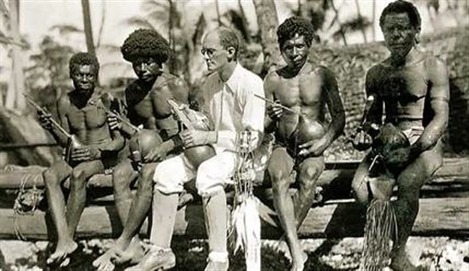
Why Liberal Academics and Ivory Tower Radicals Make Poor Revolutionaries
Tuesday, February 11, 2014
No comments
by Nicole Ouimette
The revolution will not be cited. It will not have a bibliography, or a title page. The revolution will never happen in the seclusion of the ivory tower built by racist, sexist, and classist institutions. Professional academic researchers in the social sciences of many colleges and universities exploit the struggles of oppressed peoples. Oppressed peoples are left stranded with little to no resources after researchers leave their communities high and dry.
The revolution will not be cited. It will not have a bibliography, or a title page. The revolution will never happen in the seclusion of the ivory tower built by racist, sexist, and classist institutions. Professional academic researchers in the social sciences of many colleges and universities exploit the struggles of oppressed peoples. Oppressed peoples are left stranded with little to no resources after researchers leave their communities high and dry.
Researchers steal value from oppressed peoples by making them the subjects of theoretical research without lending them access to information that could better help their communities. Articles, books, and dissertations written about marginalized populations are written for academics, not working people, and as such have little impact on the people whose lives are the subject of this research. Liberal academics and social scientists are more concerned about developing the wealth of academic literature than addressing the immediate material concerns of the communities they research.
Penelope Herideen is a Sociology researcher in Western Massachusetts (MA) and a professor of Sociology at the local community college from which I recently graduated. Herideen has written about the importance of critical pedagogy in community colleges. “Policy, Pedagogy, and Social Inequality: Community College Student Realities In Post-Industrial America” was the title of Herideen’s research discussing the realities that community college students face as they navigate their social and academic worlds. Herideen’s research is important, and yet, she was hardly involved in student organizing campaigns against budget cuts that affect low-income students. Community college students need resources developed through research like Herideen’s. This is a major flaw in academic research in the social sciences.
read more >>




































